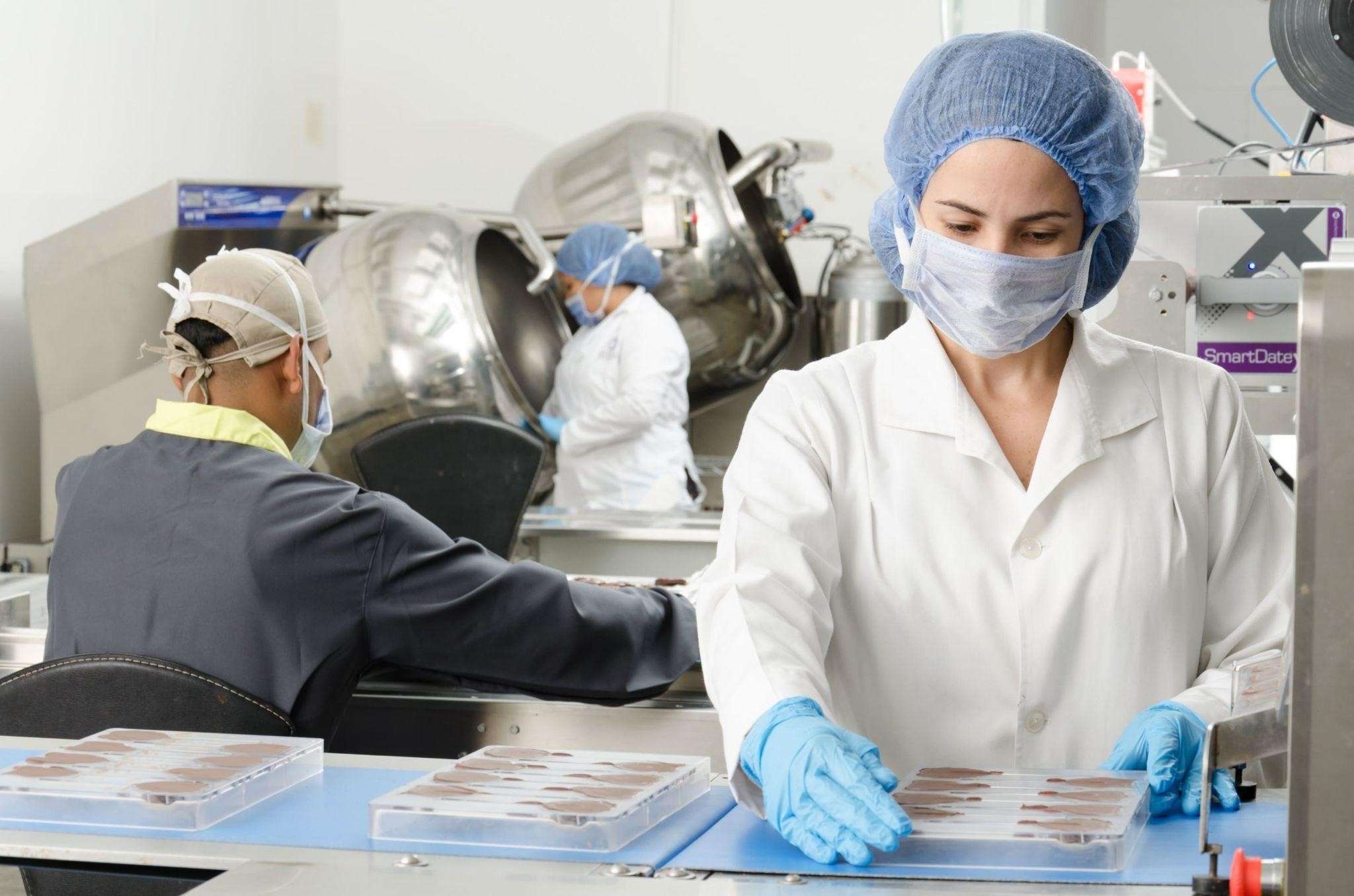What is ERP for Food Industry?
ERP for Food Industry is a self-contained discrete system that automates all aspects of the food manufacturing business and enables end-to-end management of its activities into a single system.
ERP software provides real-time tracking of orders, inventory thresholds, and food item deliveries while streamlining various processes from food manufacturing, distribution, and sales, to financial management. It provides sector-specific modules that bring traceability into business activities, reduce manufacturing waste, and help them become more transparent and compliant.
Challenges Faced by Food Manufacturing Industry
Food Safety Regulations
Food manufacturing companies have to comply with the food safety and quality regulations. These regulations can be complex, difficult to interpret, and occasionally changing, requiring more budget to hire specialised talent. Smaller companies may not afford it or risk facing penalties, and other legal consequences.
Raw Materials Availability
Raw materials availability is a major challenge faced by food companies. Food shortages can occur due to various reasons such as weather, natural events, demand fluctuations, and geopolitical events, among others. Shortage of raw materials causes a spike in prices and impacts business profitability.
Quality Issues
Contamination from environmental sources, spoilage, natural toxins, and other chemical contamination can degrade the safety and quality of the food products, making the food potentially dangerous for human consumption.
Transportation Disruptions
Food companies suffer delays in transportation due to various reasons such as traffic, congestion, accidents, potholes, and poor condition of Indian roads. Delays in the procurement of raw materials are one of the common reasons for production disruptions. In turn, the unavailability of finished goods affects the availability of finished goods.
Intense Competition
Food companies face intense pressure from both domestic and international players. They have to take various cost-cutting measures to bring down the product price. However, such measures can negatively impact the product quality and safety standards.
Features of ERP for Food Industry
Inventory Management
Inventory mismanagement can increase storage costs, affect the liquidity of the business, lead to missed sales opportunities, and damage to brand reputation. The Inventory Management module enables businesses to automate inventory-specific operations, keep a bird’s eye on the movement of stocks, and never out of the Out-of-Stock and Excess Stock problems.
Sales Management
With an integrated Sales Module, the decision-makers can get a 360-degree view of the sales activities through intuitive charts, reports, and dashboards. It empowers your business with powerful tools that facilitate sales pipeline tracking, and KPIs performance. It plays an important role in remarkably improving your sales performance. Furthermore, you can fine-tune your sales strategies to obtain a higher conversion ratio.
Data Analysis
ERP provides access to critical data in real-time which helps decision-makers become agile, respond to market changes, and formulate strategies that are beneficial for businesses in the long term. Real-time data analysis benefits businesses in various ways. It transforms raw data into aggregate data using modern Data Aggregation and Cleansing methods which enables the management to get insights into employee performance, break down data silos between different departments, and branches, and improve data reliability.
Business Intelligence
The business intelligence module plays a critical role in the day-to-day functioning of an organisation. Decision-makers can leverage intuitive charts, reports, and ad hoc reporting that are based on current and historical data, and make strongly data-backed decisions that are based on true and accurate data analysed from different perspectives. The management can get a clear picture of the financial health of the organisation and liquidity information.
Benefits of ERP for Food Industry
Market Trend Alignment
ERP system delivers real-time insights into market trends and consumer demands. This allows your business to quickly adapt to changing market conditions, stay ahead of your competitors, and tailor your products to their unique needs.
- Analyse current data and historical data to predict trends and demands
- Develop targeted campaigns to increase revenue and expand market share
- Your business gets in a better position to capitalise on emerging market trends
- Results in enhanced customer satisfaction, customer loyalty,
- Encourages proactive response to foster growth, and seize new opportunities
Food Safety Compliance
Complying with food safety is critical for the survival of any food business — whether small or large. ERP streamlines the compliance process, assigns critical food safety checks, reduces the number of recalls, and adheres to the regulatory framework.
- Provides end-to-end traceability into the ingredients so that demonstrating them to food safety enforcement agencies becomes easier
- Easier demonstration of ingredients to food safety enforcement agencies
- Enables faster isolation of contaminated food products to prevent threats to life
- Track contaminations to their source and downstream
- Helps with the segregation of allergenic food ingredients from other
Cost Control Measures
ERP solution provides visibility into various functional areas such as production, distribution, inventory, and finance. This allows businesses to identify wastage of resources, and take corrective actions to control costs and improve profitability.
- Identify inefficiencies, over-allocation of resources, and implement cost-saving measures
- Generates Discrepant Material Reports (DMR) to identify nonconforming materials, and reduce wastage and unnecessary costs
- Enables purchasing the materials for the lowest possible prices
- Reduce operational costs and overhead costs
- Reduces the costs associated with inventories such as Stockouts & Excessive Stocks
Maintaining Quality Standards
ERP brings end-to-end traceability in the procurement of raw materials, allows businesses to benefit from standardisation in the production process, and gets deeper insights at every level. With ERP, your business eliminates error-prone manual processes, and leverages automation, standardisation, accuracy, and consistency.
- Helps prioritise customer safety and build a positive brand image
- Mitigates the risks of product recalls and saves return and replacement costs
- Lots and Sublot management enables tracking defective food products to their affected lots
- Allows implementation of custom quality control rooms that align with the company objectives
- Allows early detection of defects by providing real-time tracking of raw materials
Wrapping Up…
An ERP for Food Industry is a long-proven solution that acts as the Single Source of Truth and provides a holistic view of your business operations. It provides a single system that integrates with the eCommerce, CRM, and inventory management systems to help businesses adapt to changing market demands, better understand their customers, and improve efficiency & productivity. Sage X3 is the backbone of modern food companies that provide an integrated suite of modules to cater to the unique needs of small and mid-sized food manufacturers. It offers multilingual, multi-currency support and helps your business minimise costs, maximise productivity, and speed up revenue generation.










